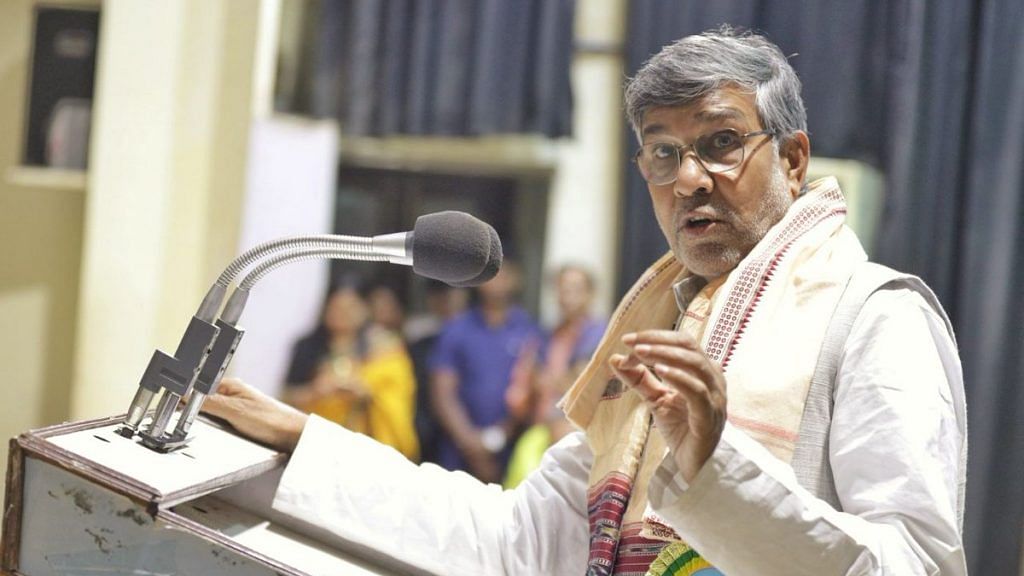Nobel Laureate Kailash Satyarthi is advocating for setting up a national children’s tribunal, on the lines of the National Green Tribunal.
In a latest, our very own Nobel Laureate, Kailash Satyarthi, is advocating the setting up a national children’s tribunal, on the lines of the National Green Tribunal (NGT), to deal with crimes against children in a time-bound and expeditious manner. In the past, Satyarthi has also been part of the advocacy for a “sex offender’s registry” in order to track child abusers and traffickers, which, incidentally, may soon see the light of day.
Most child-related laws today have a system for time-bound inquiry and trial built into the law. Should Satyarthi not demand better implementation, rather than yet another mechanism?
Is the answer to non-implementation of existing laws more laws? Is the answer to the tardy implementation of systems the creation of more systems and institutions?
Satyarthi is not the only one. In the last few months, a slew of states have moved to pass laws awarding the death penalty to those convicted of raping minors – Madhya Pradesh, Rajasthan, Haryana, Arunachal Pradesh and even Delhi.
The recently introduced ‘Trafficking of Persons (Prevention, Protection and Rehabilitation) Bill, 2018’ is yet another legislation being added to the already fragmented landscape of laws on human trafficking. It has brought with it more complicated systems and institutions for redressal.
We know children want the abuse to stop. But, will death penalty for an abuser act as deterrent for disclosure by child victims, rather than deterrent for abusers? A recent study by our group ‘HAQ: Centre for Child Rights’, based on the cases we handle, shows that over 80 per cent of the accused are persons that the child knew, and therefore trusted. About 52 per cent of cases of incest are committed by the victims’ fathers. The others are brothers, uncles, and other ‘loved ones’.
The life of an abused child does not operate in black and white. Children hate the abuse, but continue to love the abuser because of the biological relationship. Knowing that the disclosure may lead to death – including in many cases of their own father – will children still speak up and report them?
Any judge will tell us that the more stringent and penal the provision for punishment, the more hesitant they are to pronounce it. The answer is better prosecution, and certainty of conviction, instead of more stringent punishments.
Children of convicts face stigma, as do the victims themselves. Will having the names of fathers and other family members on the Sex Offenders Registry be bringing greater justice to children? Or will it add to their stigmatisation and ostracisation?
Let us look at what has happened in the recent past.
Despite so many people recommending the contrary, the government went ahead with the provisions for mandatory reporting, and the raising of age of consent to 18 years in the Protection of Children from Sexual Offences (POCSO) Act, 2012. This was their way of telling the nation that it was taking measures to protect children, and that everyone better shut up. So, we all did.
Now we hear cries of ‘misuse of law’ as young people get arrested for underage consensual activity. As if that is not enough, a Supreme Court order has now made underage sexual activity even in marriage an offence – even as the child marriage continues to be legal and voidable.
Doctors and even other service providers are refusing to provide basic services to children for fear of penal action for non-reporting, and children who are pregnant have to go to illegal underground abortion clinics, putting their lives in danger.
In the last three years, we have seen the amendment and enactment of the Juvenile Justice (Care and Protection of Children) Act, 2015, which ‘responded to public sentiment’ and introduced the waiver of child offenders into the adult system.
This, despite two Supreme Court judgements and many other voices suggesting the change in law should be preceded by proper implementation of the existing law in philosophy and spirit. Those baying for the blood of the ‘juvenile’ in Jyoti Singh’s case (Nirbhaya) were largely from the middle class, which had a very ‘specific image of the dangerous juvenile who walks scot-free because of the law’.
With the recent incidents, such as that of the suspected child offender in the Ryan School murder case, the middle class is running for cover. Suddenly, it could be their own child, who may need the ‘protection’ of a juvenile justice system. Of course, now it’s too late. The law is enacted and being implemented.
The law on child labour was amended and enacted – again in a rush, despite many experts and activists saying that the gaps in it will only allow for continuation for child labour. But again, there was rush to the finish, so no one was listening.
In the name of concern for children, we are witnessing shrill demands and knee-jerk reactions and action. If the action is short-sighted and flawed, the children will have to bear the consequences long after the momentary public interest is satisfied.
Unfortunately, when a Nobel Laureate asks for something, there’s more chances he gets the state moving. Only one can wish he will stop asking for more laws or bodies, and ask for political will and better implementation.
Enakshi Ganguly is the founder co-director of HAQ: Centre for Child Rights.
